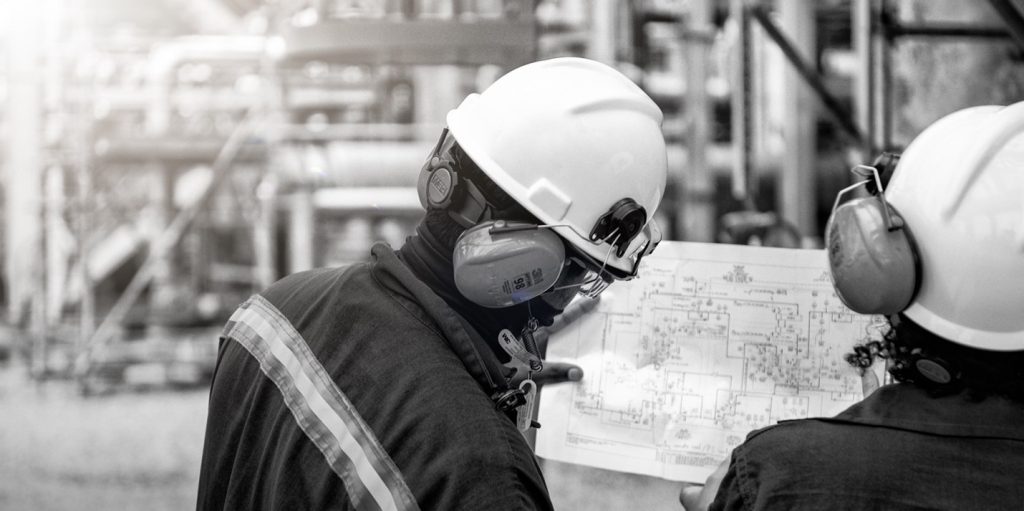NiQuan Energy LLC embarked on its mission to revolutionize the energy landscape when Ainsley Gill, the Founder and Group Chief Visionary Officer, established the company in 2008. Initially conceived as an energy consulting firm, NiQuan soon evolved into a pioneering force poised to make a substantial impact on the global stage.
In 2012, NiQuan Energy LLC took a significant step forward by acquiring its first gas-to-liquids (GTL) plant in the Western hemisphere. Recognizing the potential of Fischer-Tropsch (FT) technology, which utilizes the cleanest hydrocarbons to produce fuels, Ainsley Gill strategically guided the company toward becoming a leader in the GTL industry.
The company successfully established a fully operational GTL plant with a nameplate capacity of 2,400 barrels per day, marking a major triumph in its journey toward a cleaner energy future. The following article highlights NiQuan’s vision moving forward.
Addressing Market Needs
As the global demand for clean energy escalates, NiQuan Energy LLC is committed to meeting these market demands while prioritizing affordability, reliability, and sustainability. Recognizing the imperative to decarbonize hard-to-abate industries, NiQuan has developed the
NiQuan Integrated Solution (NIS), offering a comprehensive approach to producing clean, lower-carbon drop-in fuels.
The NiQuan Integrated Solution combines proven technology, industry-specific expertise, and proprietary training programs to transform underutilized assets, such as mothballed ammonia and methanol plants, into lucrative revenue streams. Leveraging this innovative approach, NiQuan Energy LLC has successfully revitalized stranded fields and converted them into valuable assets for producing clean, biodegradable fuels.
The Transition to Clean Energy
Addressing climate change and environmental degradation is paramount, necessitating a transition towards a cleaner and more sustainable future. One key aspect of this transition is the development and adoption of low-carbon fuels and innovative technologies that minimize environmental impact while meeting growing energy demands.
Low-Carbon Fuels: Paving the Way to Sustainability
Low-carbon fuels, such as those derived from renewable sources or produced using advanced technologies like gas-to-liquids or GTL, offer a promising solution to reducing greenhouse gas emissions and mitigating climate change. These fuels, characterized by their lower carbon content play a crucial role in decarbonizing transportation, industry, and power generation sectors.
By leveraging renewable energy sources like solar, wind, and biomass, low-carbon fuels offer a sustainable alternative to conventional fossil fuels, reducing reliance on finite resources and minimizing environmental pollution. Additionally, advanced technologies like
GTL enable the production of cleaner, high-quality fuels that meet stringent emissions standards while enhancing energy security and diversification.
 Innovating for Sustainability
Innovating for Sustainability
The use of alternative liquid feedstocks for ethylene production is revolutionizing industries traditionally dependent on fossil fuels and petrochemicals. This shift towards renewable sources like biomass or waste oils allows manufacturers to reduce their carbon footprint while maintaining high-quality production. In offshore drilling, the adoption of synthetic drilling fluids made from biodegradable base fluids is enhancing environmental performance. These fluids offer a sustainable solution for maintaining borehole stability, protecting sensitive waterway environments from pollution, safeguarding marine ecosystems, and preserving biodiversity.
NiQuan Clean Drilling Fluid (NiQuan CDF™) provides a solution for sustainable drilling practices, offering an on-spec, environmentally friendly product that meets OGP Group III standards. With very low toxicity, this biodegradable fluid is an ideal base fluid for synthetic drilling muds, essential for supporting borehole stability. Being non-toxic, NiQuan CDF™ helps prevent waterway pollution. The fluid's low pour point, low viscosity, and narrow boiling range enhance its rheological performance. In contrast, its near-zero sulfur content, low aromatics, and reduced nitrogen levels ensure a safer operation. NiQuan CDF™ also has a high flash point and low absorbency, making it safer to store and handle.
Produced using NiQuan's advanced X-to-Liquids (XTL) technology and the Fischer-Tropsch catalytic process, NiQuan CDF™ is a cost-efficient, low-emission solution for creating Group III NABFs. Extensive testing by Intertek Laboratories in Houston, Texas, verified its performance as a base for preparing drilling fluids, ensuring industry-standard compliance.
Challenges and Opportunities Ahead
Despite the significant progress made in developing cleaner fuels and technologies, challenges remain on the path to a sustainable future. While NiQuan Energy LLC has made remarkable strides in advancing clean energy solutions, the journey toward a cleaner energy future is not without its challenges. Regulatory hurdles, technological limitations, and economic barriers often hinder the widespread adoption of low-carbon solutions, necessitating greater collaboration and innovation across industries and sectors.
However, these challenges also present opportunities for innovation and investment in clean energy solutions. From enhancing research and development efforts to incentivizing renewable energy deployment and fostering cross-sector partnerships, there are numerous avenues for advancing sustainability and driving positive change. With a steadfast commitment to sustainability and a proven track record of success, NiQuan Energy LLC remains poised to overcome these challenges and lead the transition to a more sustainable energy paradigm. By leveraging its expertise, resources, and innovative technologies, NiQuan Energy LLC is paving the way for a brighter, cleaner future.
Conclusion
In conclusion, the transition to a cleaner, more sustainable future requires concerted efforts and collective action from governments, industries, and individuals alike. By embracing low-carbon, clean fuels, innovative technologies, and sustainable practices, we can mitigate climate change, and protect the environment.
 Innovating for Sustainability
Innovating for Sustainability